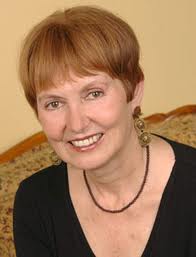Historian Elizabeth Abbott wishes she had read her own book before she got married. The union ended in divorce, leaving her a single mother. “I didn’t understand the importance of financial arrangements. I thought it was crass,” says Abbott, a researcher, writer and former dean of women at the University of Toronto’s Trinity College. She knows better now, not just from experience, but from history. Abbot’s most recent book is A History of Marriage, nominated for a Governor General’s Literary Award this year, and the third part of her historical trilogy following The History of Celibacy (1999) and The History of Mistresses (2003). Her latest book is a look at a constantly changing institution that is rarely perfect, sometimes disastrous, yet still with us after thousands of years. People often ask Abbott if she is for or against marriage. Her wanderings across a historical landscape that covers millennia has led her to the conclusion that, despite its imperfections and its origins as a patriarchal institution, “marriage is a flexible institution that can provide for raising children, for pooling resources, sharing necessary duties, obtaining security and extended family and social connections.” For the full article click here.

